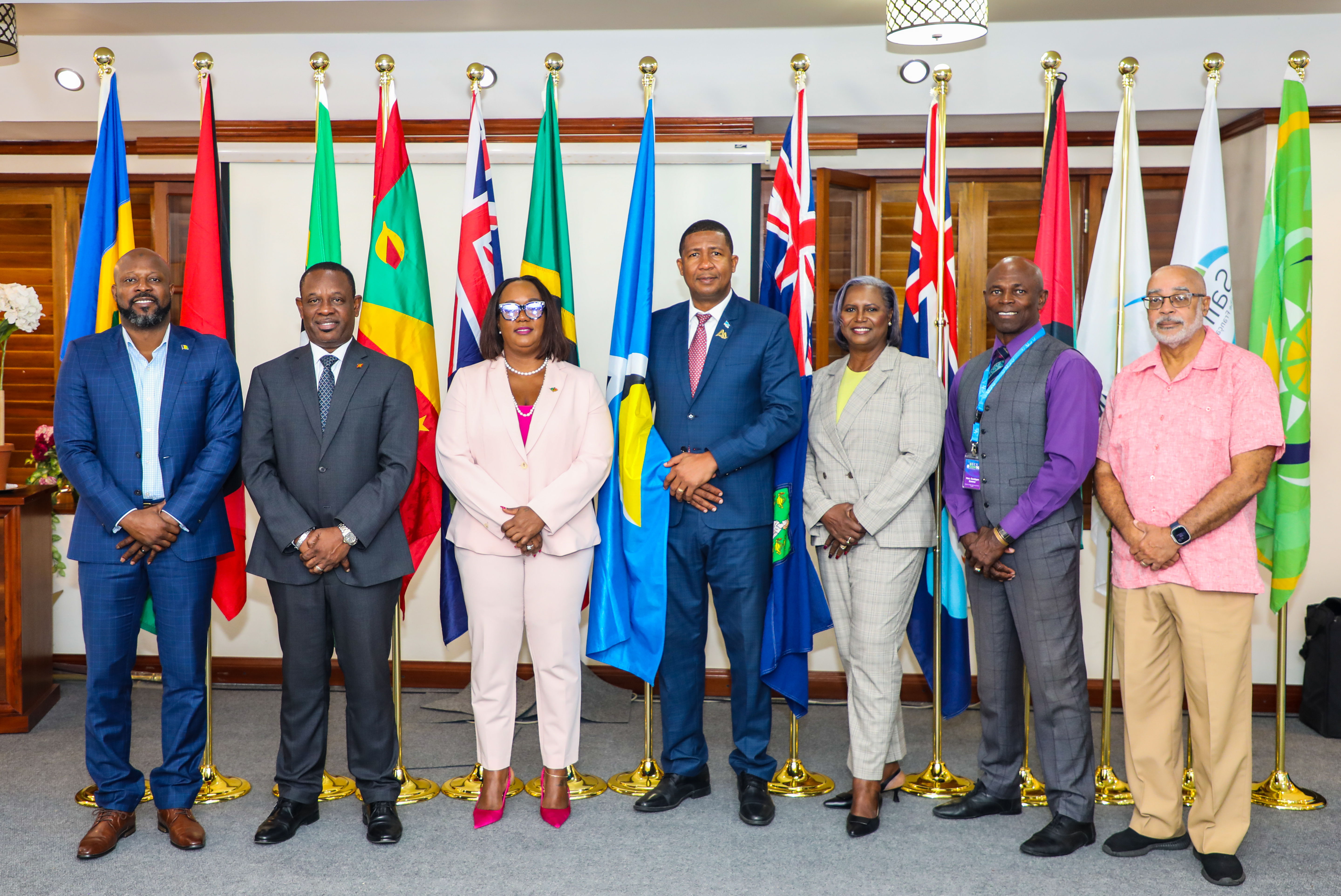OECS Ministers of Tourism endorse Sustainable Tourism Policy 2025-2035
OECS Press Release
April 1, 2025 – The Eighth Meeting of the OECS Council of Ministers: Tourism was held on Friday, March 28, 2025, at Beachcombers Hotel in Saint Vincent and the Grenadines. Chaired by Senator the Honourable Adrian Thomas, Grenada’s Minister for Tourism, Creative Economy, and Culture, the meeting saw strong ministerial attendance and yielded significant outcomes.
Notably, the Council endorsed the OECS Sustainable Tourism Policy 2025–2035, a decision welcomed by Minister Thomas,
“Our responsibility is to set a clear and sustainable path. A path that balances economic prosperity with environmental conservation, cultural preservation and social well-being. This meeting marks a pivotal moment in our collective effort to shape a sustainable future for tourism. One that ensures long-term benefits for our people, our environment, and future generations. The Policy is not just a document, it is a commitment to responsible governance, environmental stewardship, and economic resilience. By approving this policy, we are taking the bold step towards ensuring that our tourism sector strives sustainably, creating a lasting legacy for our people and our planet.”

The Chairman appealed to Ministers to work together to make the OECS tourism vision a reality. In his welcome remarks, host Minister, Honourable Carlos James, Minister for Tourism, Civil Aviation, Sustainable Development and Culture, warmly welcomed the visiting Ministers of Tourism to Saint Vincent and the Grenadines. He emphasised the significance of their gathering and the importance of the meeting,
“The world as we know it is changing and will continue to change. The most important thing we can do as a regional block, in this moment and in this time, is to find the opportunities for greater level of integration and collaboration in tourism, and to action them.”

H.E. Dr. Didacus Jules, OECS Director General, in his opening remarks, stressed the importance of tourism to Member States driving employment, supporting livelihoods, and showcasing the beauty, culture, and resilience of people.
“Yet the challenges we face today especially are significant. The Caribbean tourism sector in 2025 is navigating a landscape marked by complexity and uncertainty. Several forces – climate change, geopolitical instability, technological disruption, and evolving traveller preferences – are reshaping our
environment. These forces not only require bold leadership, but also a united commitment to reimagine the future of tourism in our region,” said Dr. Jules.
Dr. Jules also described the rise of mega cruise ships as a “double-edged sword,” presenting both opportunities and risks. He stated,
“We must strike a delicate balance between sustainability and expansion. This means implementing policies that encourage cruise operators to adopt greener practices and investing in port infrastructure that minimizes environmental harm. Additionally, we must explore how to maximize the flow of tourism dollars to local communities. Initiatives like community-based tourism and agri-tourism are excellent avenues for achieving this.”

A significant outcome of the meeting was the endorsement of the OECS Sustainable Tourism Policy 2025 to 2035, developed through an extensive consultative process with Member States. This policy replaces the 2011 Common Tourism Policy, which expired in 2016. Aligned with the OECS’s overarching strategic priorities, the new policy aims to drive economic transformation, promote environmental sustainability, foster social inclusion, and enhance resilience-building across Member States. It introduces a renewed vision and mission, three broad strategic goals, twelve specific strategic goals, updated guiding principles, eight thematic development areas and numerous common policy directives.
The Council of Ministers also received a presentation on the potential impact of the USA’s new trade, economic and immigration policies on the OECS and their implications for the tourism sector, followed by a discussion. Other updates were also provided on the OECS progress made with respect to the Climate Action Plan for Tourism, Niche Tourism Marketing and Blue Tourism activities.
The meeting was attended in person by Ministers from Grenada, Saint Kitts and Nevis, Saint Lucia, Saint Vincent and the Grenadines, the British Virgin Islands and Anguilla, with the Commonwealth of Dominica joining virtually. Also in attendance were Permanent Secretaries of Grenada and Saint Vincent and the Grenadines, and other technical representatives from Saint Lucia, Saint Vincent and the Grenadines and Martinique.






